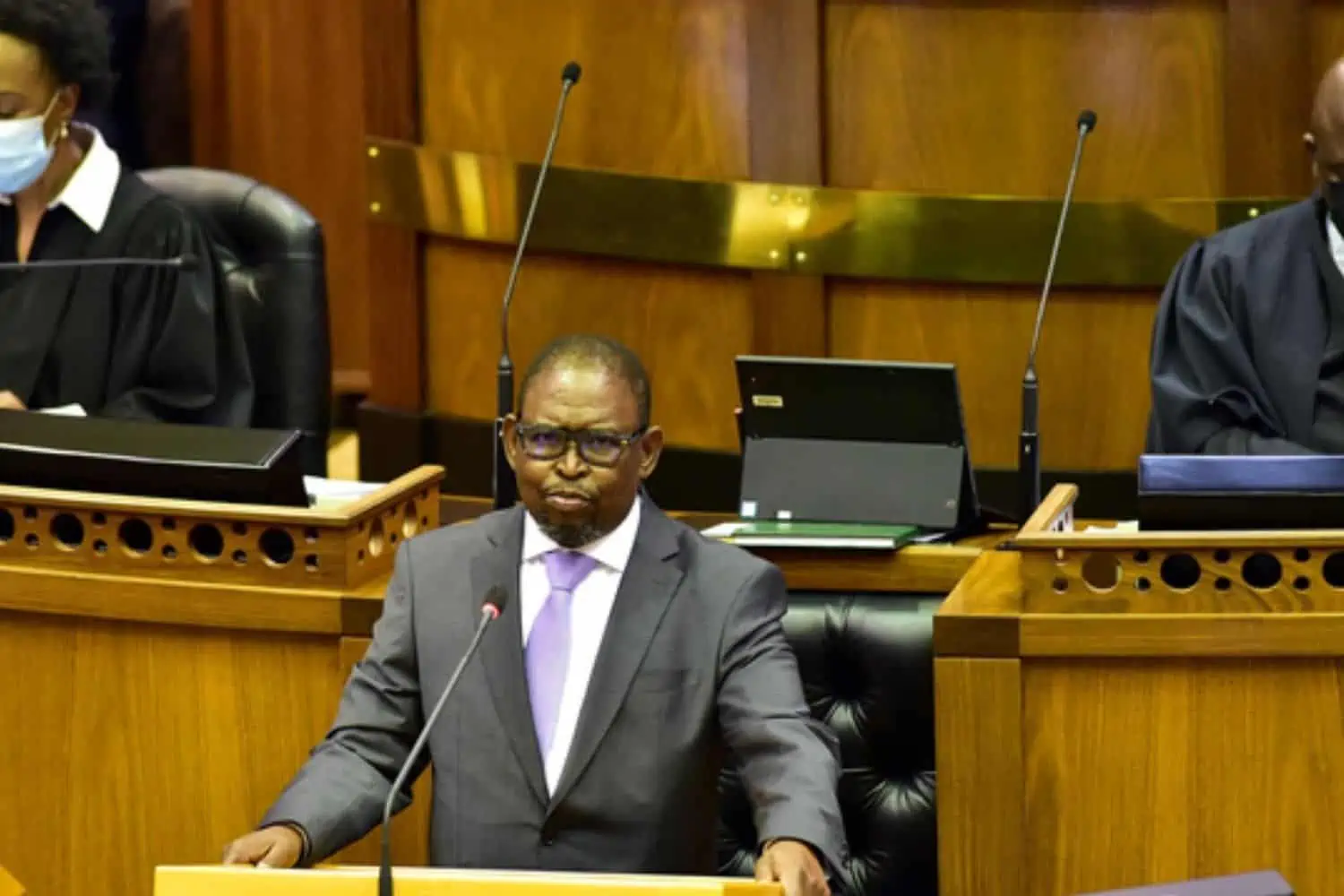Minister of Finance Enoch Godongwana will be presenting the 2022 budget speech today at 14:00. Godongwana faces a long list of demands from different societal sectors and is expected to cover a list of topics, including the government’s capital expenditure for the next three years.
Overall, analysts are not anticipating any big surprises from the speech. However, investors will be on the lookout for any economic transformation talk that may decrease long-term risks.
The following charts are a good indication of what to look out for in the fiscal framework around Minister Godongwana’s 2022 budget speech.
Budget Gap
Revenue is currently on course to exceed estimates, thus the consolidated budget deficit should narrow faster than previously expected.
According to Bloomberg’s survey, the median of 18 economists is for a shortfall of 5.7% of gross domestic product in the fiscal year through March 2023. This is compared with the gap of 6% that was estimated by the National Treasury in November.
And with an improved tax collection, a tighter and faster path to a primary budget surplus can also be expected.

Declining Debt
It is expected that the country’s debt levels will also undershoot the Treasury’s estimates that were made in November.
According to economists in the Bloomberg survey, the improvement could be “derailed” if the state makes the decision to take over part or all of Eskom‘s R392 billion of debt.

Welfare Payments
In February, President Ramaphosa confirmed that the monthly grant payment for the jobless will be extended until March 2023. And this extension will most likely be funded by the revenue windfall.
81% of economists that took part in Bloomberg’s survey expect the programme to be made permanent. Whereas two-thirds of the group foresees the introduction of a basic income grant before the national elections in 2024.
However, if the expansion of the welfare net is permanent, it means that the government will have to consider “borrowing and raising taxes”.

State Pay
Negotiations for state-worker salaries continue to cloud the fiscal outlook. State-worker salaries have “outpaced economic growth since 2014” and average almost a third of budget expenditure.
And more spending pressures can be added if a new three-year pay deal with labour groups are not met.
“Talks that could run until March next year mean the National Treasury will have to continue paying cash gratuities that could cost more than its 20.5 billion-rand annual estimate,” one of the Bloomberg survey participants noted.

Potential Growth
In PwC’s predictions for the 2022 budget speech last week, the company said that “the Treasury is expected to retain the conservative GDP growth estimates it gave in November for the next three years but may revise 2022’s slightly upward”.
And IMF has also warned that, unless “broad structural reforms are adopted in coordination with fiscal consolidation, the growth rate is unlikely to exceed the 2% needed to begin to meaningfully reduce unemployment and poverty”.

